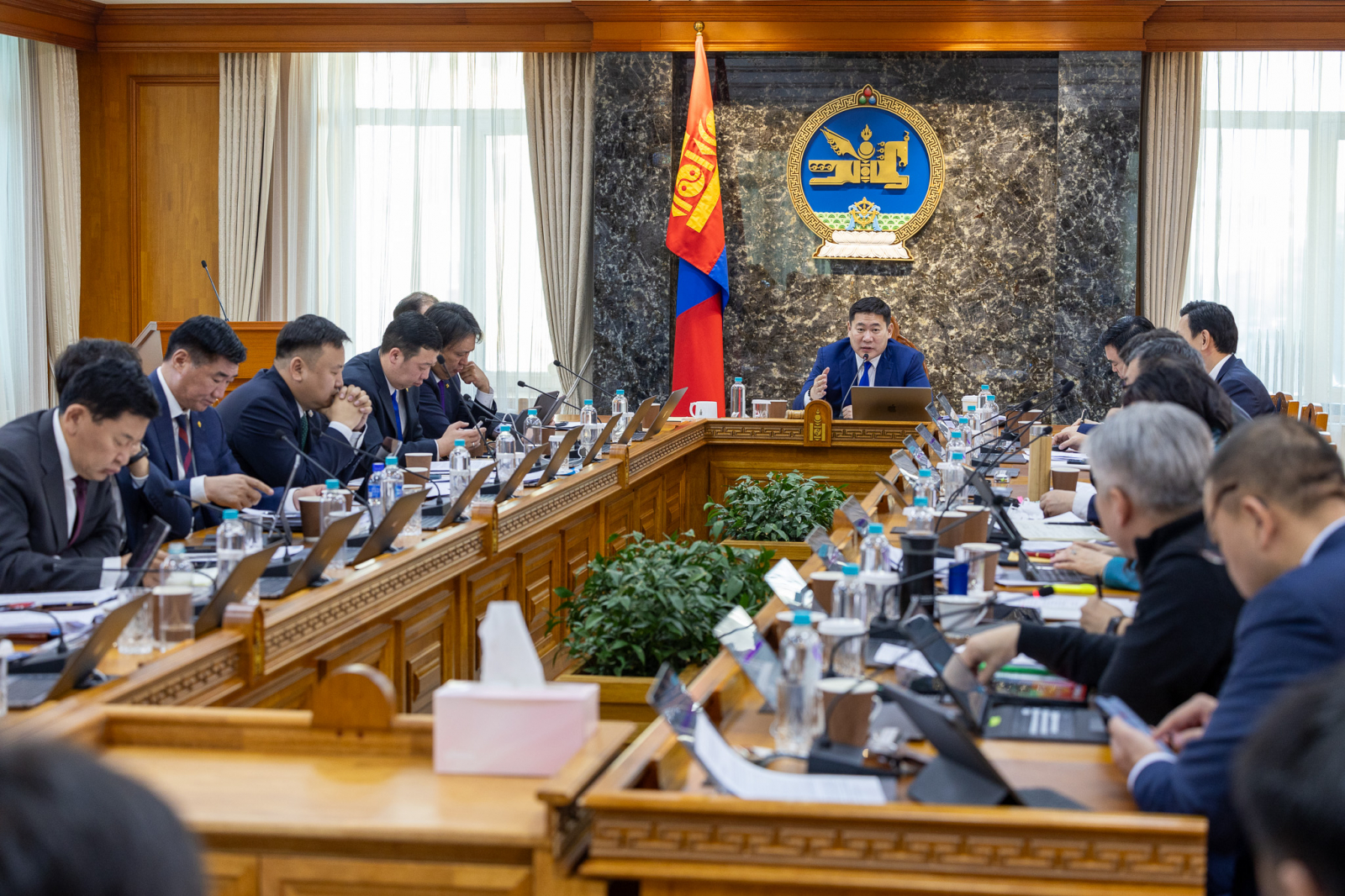Highlights from the Cabinet Meeting on January 8
Draft Law to Reduce Air and Environmental Pollution in Ulaanbaatar
A draft law aimed at mitigating air and environmental pollution in Ulaanbaatar was presented to cabinet members. Relevant officials were instructed to incorporate the cabinet's feedback and urgently resubmit the proposal for further discussion.
The proposed law seeks to safeguard citizens' health and ensure their right to a safe and healthy environment by addressing the negative impacts of air and environmental pollution in the capital.
Under the draft, areas near the city center will be reorganized into designated green and yellow zones. The Governor of Ulaanbaatar will have the authority to establish or modify the boundaries and locations of these zones.
Key provisions include:
Green Zone Restrictions: Only gas and liquid fuels meeting approved standards may be burned. Vehicles emitting pollutants above permitted levels will be prohibited, and their owners will be barred from purchasing gasoline and diesel fuel.
Pit Latrines: The use of pit latrines in green zones will be banned.
Waste Management: Recycling, incineration, disposal, and burial of waste in green zones will be strictly prohibited.
Coal Briquettes to Be Produced Using High-Quality Coal from the Tavantolgoi Mine
The Minister of Environment and Climate Change S. Odontuya presented measures to improve air quality at the cabinet meeting.
The state-owned Tavantolgoi Tulsh Company, which produces coal briquettes and is now under the ownership of the capital city, previously sourced raw materials from Energy Resources LLC. However, the supply agreement with Energy Resources LLC has expired, and a shift in raw materials is necessary to enhance the quality of briquettes.
Studies have explored alternative raw materials, including semi-coke and high-quality coal from the Tavantolgoi mine. Based on these findings, the cabinet decided to transition to using high-quality Tavantolgoi coal for briquette production starting this year.
Additionally, plans are underway to upgrade 276 coal-fired boilers in Ulaanbaatar. Measures include switching boilers from coal to gas, connecting them to centralized heating systems, and improving equipment. These upgrades are expected to reduce air pollution by 13%. For instance, 30% of the boilers will be converted to gas by 2025.
Smoke from thermal power plants accounts for 6% of Ulaanbaatar's air pollution. Most equipment, installed between 1961 and 1990, is outdated, except for the Amgalan Thermal Plant. The cabinet emphasized the need to modernize these facilities and replace outdated smoke filters. Vehicles contribute to over 30% of air pollution in the capital. Of the 804,656 registered vehicles, 74.2% are more than 10 years old. Top of Form

